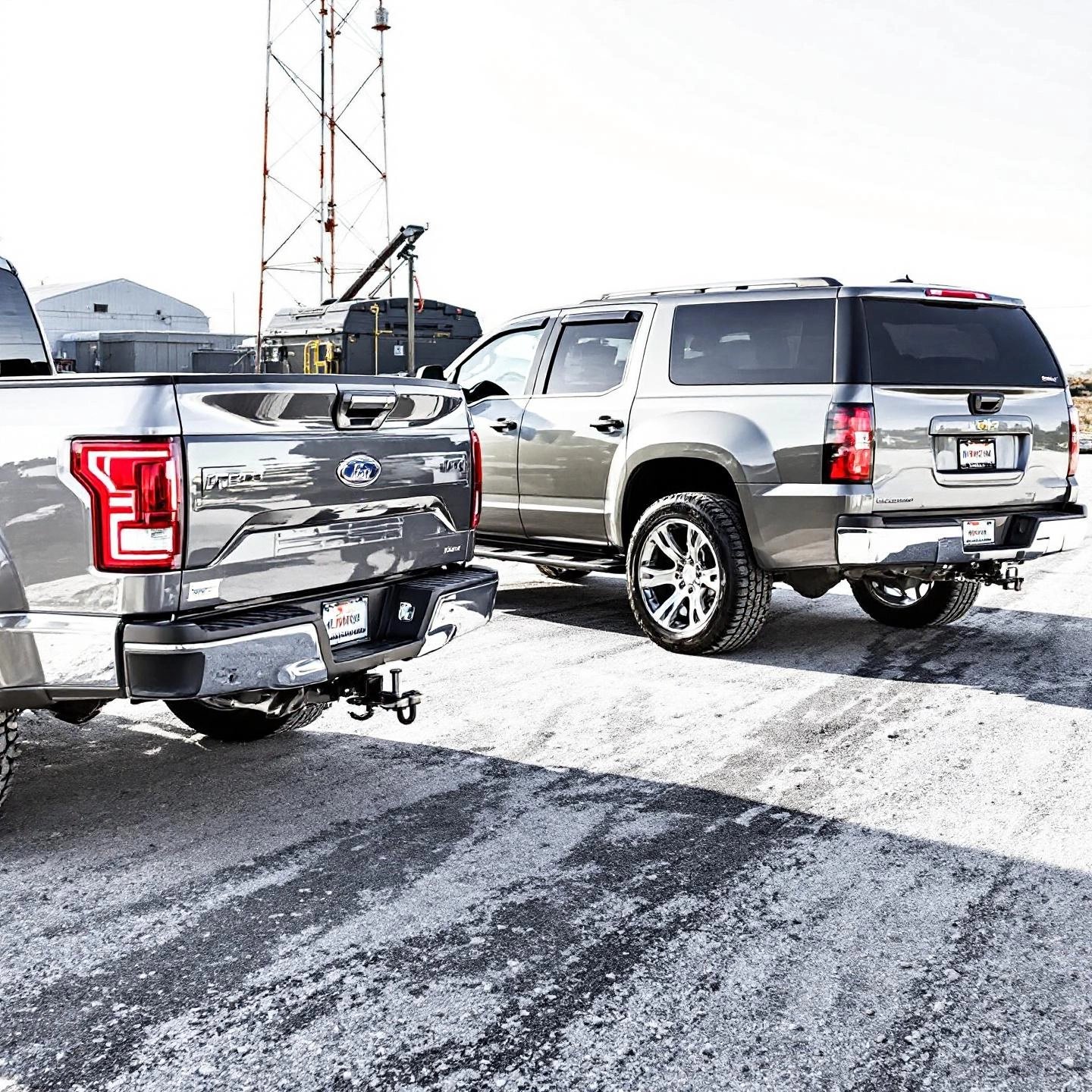
Have you ever found yourself needing to tow a boat one weekend, a camper the next, and maybe a utility trailer for a home project? If so, you know the challenge: every trailer rides at a different height, and not every hitch can adapt. This is where the Adjustable Aluminum Trailer Hitch steps in, offering a smarter, more flexible solution for today’s multi-purpose tow vehicles.
Imagine a hitch that adapts to your needs—whether you’re towing a lightweight utility trailer or a heavy camper. An adjustable aluminum trailer hitch is a specialized towing accessory designed with a vertical channel or shank, allowing you to easily raise or lower the ball mount. This feature ensures your trailer always sits level, regardless of its size or the height of your tow vehicle. Thanks to its aluminum construction, it’s not just strong but also lightweight and naturally resistant to corrosion, making it a favorite among truck and SUV owners who demand both performance and convenience.
With the surge in SUV and pickup truck ownership, especially in North America where over 62% of these vehicles are equipped with towing systems, the need for a versatile trailer hitch has never been greater (source). More drivers are choosing hitches that can handle multiple trailers, eliminating the hassle of buying, storing, and swapping out different fixed mounts. Whether you’re an outdoor enthusiast, a small business owner, or simply someone who values flexibility, an adjustable hitch streamlines your towing experience.
Throughout this guide, we’ll break down how these hitches work, the advantages of aluminum, and what to look for in a quality adjustable hitch. If you’re serious about safe, hassle-free towing, understanding this essential equipment is your first step to mastering any haul.
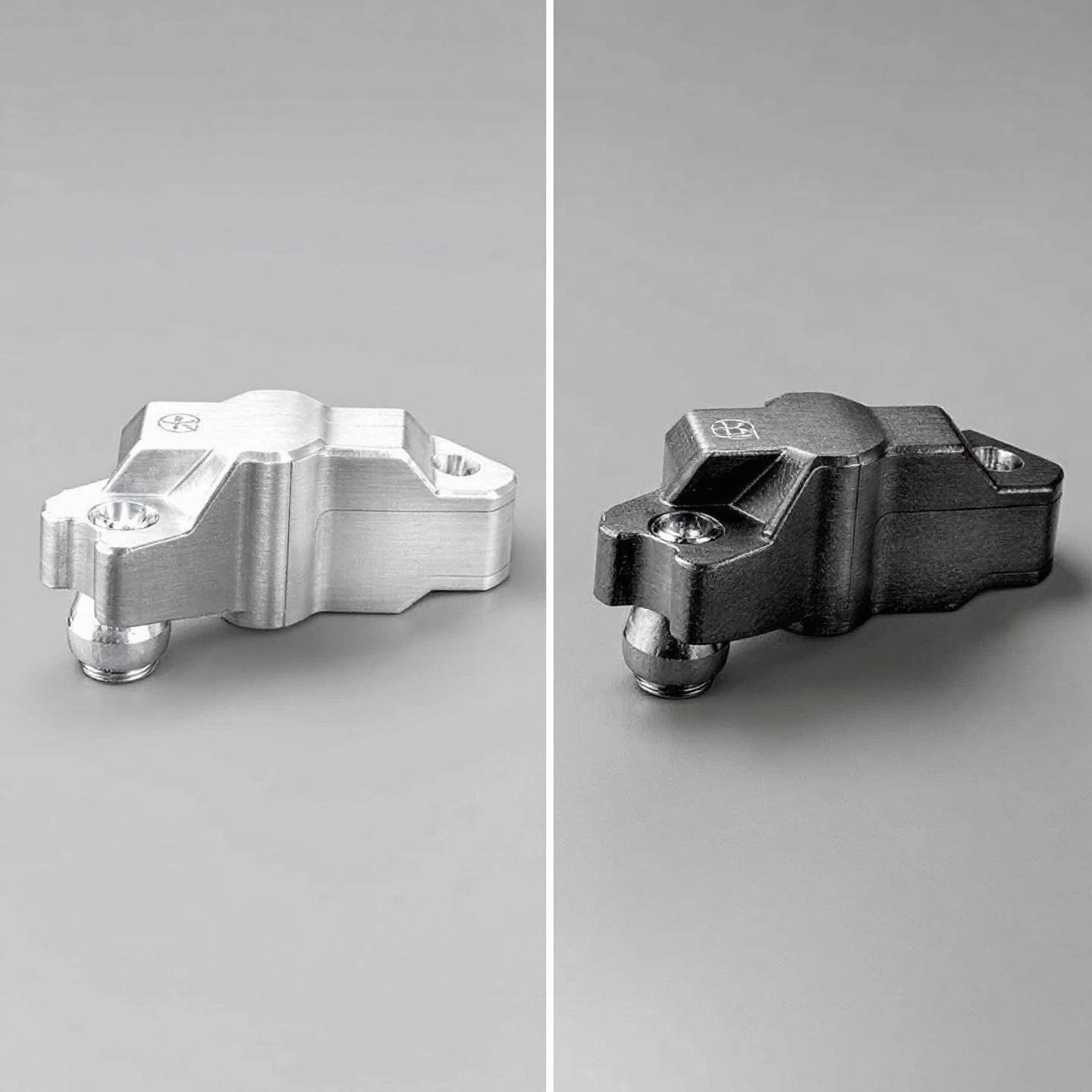
When you’re standing in the aisle, staring at a wall of hitches, you might wonder: Why choose aluminum over steel? The answer isn’t just about appearance—it’s about performance, durability, and ease of use. Let’s break down why aluminum has become the go-to material for many adjustable trailer hitches, especially for those who value a corrosion resistant trailer hitch and effortless handling.
Imagine hauling your trailer through rain, snow, or even along salty coastal roads. Over time, moisture and road chemicals can eat away at metal, leading to rust and a weakened hitch. That’s where aluminum shines. Unlike steel, aluminum naturally resists corrosion, giving you peace of mind no matter the weather or climate. This quality makes it ideal for anyone who regularly tows in challenging environments or simply wants a hitch that keeps its good looks and strength for years.
Still unsure which material fits your needs? Here’s a clear comparison to help you decide:
| Feature | Aluminum Hitch | Steel Hitch |
|---|---|---|
| Weight |
Lightweight (17–23 lbs) Easy to lift and install |
Heavier (31–38 lbs) More effort to handle |
| Corrosion Resistance |
Excellent Does not rust, even in humid or wet conditions |
Moderate Needs coatings (powder, zinc) to resist rust; vulnerable if coating chips |
| Strength & Towing Capacity |
Up to 21,000 lbs (depending on size) Sufficient for most towing needs |
Up to 22,000 lbs (depending on size) Best for extreme, heavy-duty towing |
| Maintenance |
Low Simple cleaning; no need for grease or recoating |
Moderate Requires regular inspection, touch-up paint, or grease to prevent rust |
| Durability in Harsh Climates |
Outstanding Ideal for wet, coastal, or winter use |
Good But needs more care in harsh or wet environments |
Of course, steel isn’t without its advantages—if you regularly tow at the upper limits of capacity or need a hitch for extreme, heavy-duty jobs, steel may offer a slight edge in maximum strength. But for most everyday towers, the balance of strength, ease of use, and corrosion resistance makes aluminum the lightweight champion. Ready to see how adjustability further enhances towing safety and convenience? Let’s dive into why perfect alignment matters next.
Ever towed a trailer only to notice it tilting up or down at an odd angle? Maybe you felt the trailer sway more than expected, or your vehicle seemed to struggle, even with a light load. That’s where the magic of an adjustable drop hitch comes into play. Let’s break down why adjustability is the secret ingredient to safer, smoother, and more efficient towing.
Imagine you own a boat trailer, a camper, and a utility trailer—all with different tongue heights. With a fixed hitch, you’d have to compromise, risking a non-level setup for at least one trailer. An adjustable hitch eliminates this hassle by allowing you to fine-tune the hitch height for every trailer you own. The result? Level towing every time, no matter the combination of vehicle and trailer.
Why does leveling matter so much? When your trailer rides parallel to the ground, several important things happen:
Let’s say you’re switching from towing a lightweight utility trailer to a heavier camper. With an adjustable drop hitch, you simply measure the distance from the ground to your trailer’s tongue and adjust the hitch to match. This quick step ensures your trailer sits level, preventing issues like rear sag on your vehicle or excessive pressure on the trailer’s axle.
"Safe towing always starts with a balanced trailer."
Ultimately, the ability to achieve perfect alignment with each tow isn’t just about convenience—it’s about protecting your investment and ensuring everyone’s safety on the road. In the next section, we’ll explore what features to look for when choosing the best adjustable hitch for your needs, so you can tow with confidence every time.
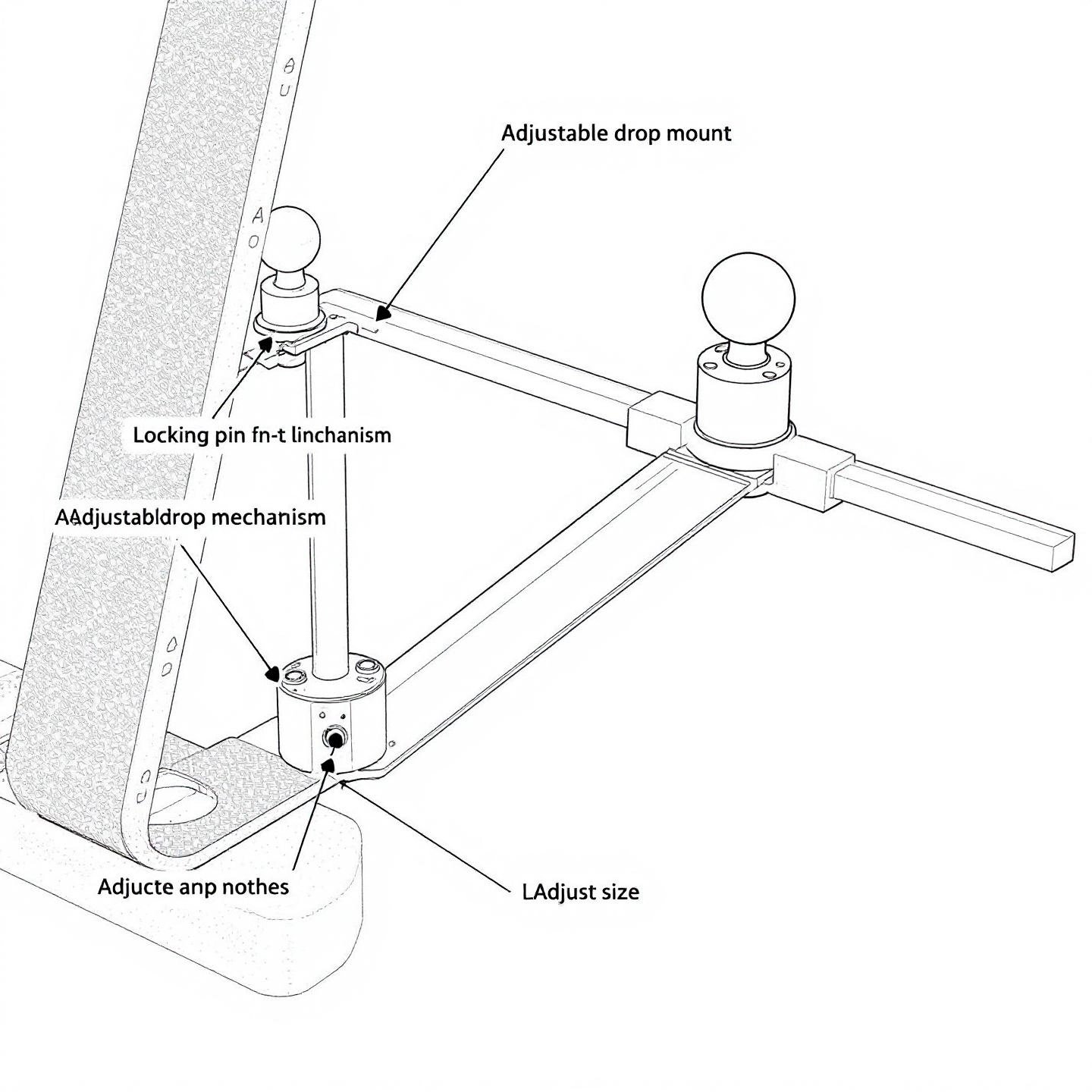
When you’re searching for the best adjustable aluminum trailer hitch, it’s easy to get overwhelmed by technical jargon and countless product options. So, what truly sets a great hitch apart? Let’s break down the essential features you should look for—whether you’re a weekend adventurer or a towing professional.
Imagine pulling up to your trailer and, in just a few moments, customizing your hitch to fit perfectly—no extra tools, no heavy lifting, and no guesswork. That’s the promise of a well-designed adjustable hitch. But to get there, your hitch needs to check a few critical boxes:
If you’re wondering which brand delivers on all these points, Shengxin Aluminum is a name that stands out for quality and innovation. Their adjustable aluminum trailer hitches are engineered from high-grade aluminum alloy, offering a lightweight yet durable solution that’s easy to adjust and built to last. With features like a corrosion-resistant anodized finish, secure locking mechanisms, and a design that accommodates a wide range of trailer types, Shengxin’s products exemplify what you should expect from a top-tier hitch.
| Feature | Why It Matters |
|---|---|
| High-Grade Aluminum | Reduces weight, resists corrosion, and maintains strength |
| Wide Drop/Rise Range | Ensures level towing with any trailer height |
| Dual Ball System | Accommodates multiple trailer coupler sizes |
| Secure Locking Pins | Prevents accidental detachment and deters theft |
| Clear Weight Ratings | Helps you match hitch to load safely |
| Corrosion-Resistant Finish | Long-term durability in all weather conditions |
Choosing the right adjustable hitch is about more than just towing—it’s about towing safely, efficiently, and with total confidence. As you explore your options, keep these must-have features in mind. In the next section, we’ll walk through the installation and adjustment process, so you can make the most of your new hitch from day one.
Ready to make the most of your adjustable aluminum trailer hitch but unsure where to start? Maybe you’ve glanced at the parts and wondered, “Does this really come together that easily?” The good news: installing and adjusting your hitch is a straightforward process when you follow the right steps. Let’s walk through a practical trailer hitch setup guide so you can tow with confidence—no guesswork, no stress.
Before hitting the road, a few simple checks can make all the difference:
"Safe towing always starts with a balanced trailer and a secure connection."
By following these steps, you’ll not only install an adjustable trailer hitch correctly but also set yourself up for a smooth, worry-free towing experience. Next, we’ll look at how to keep your hitch in peak condition with simple maintenance and care tips.
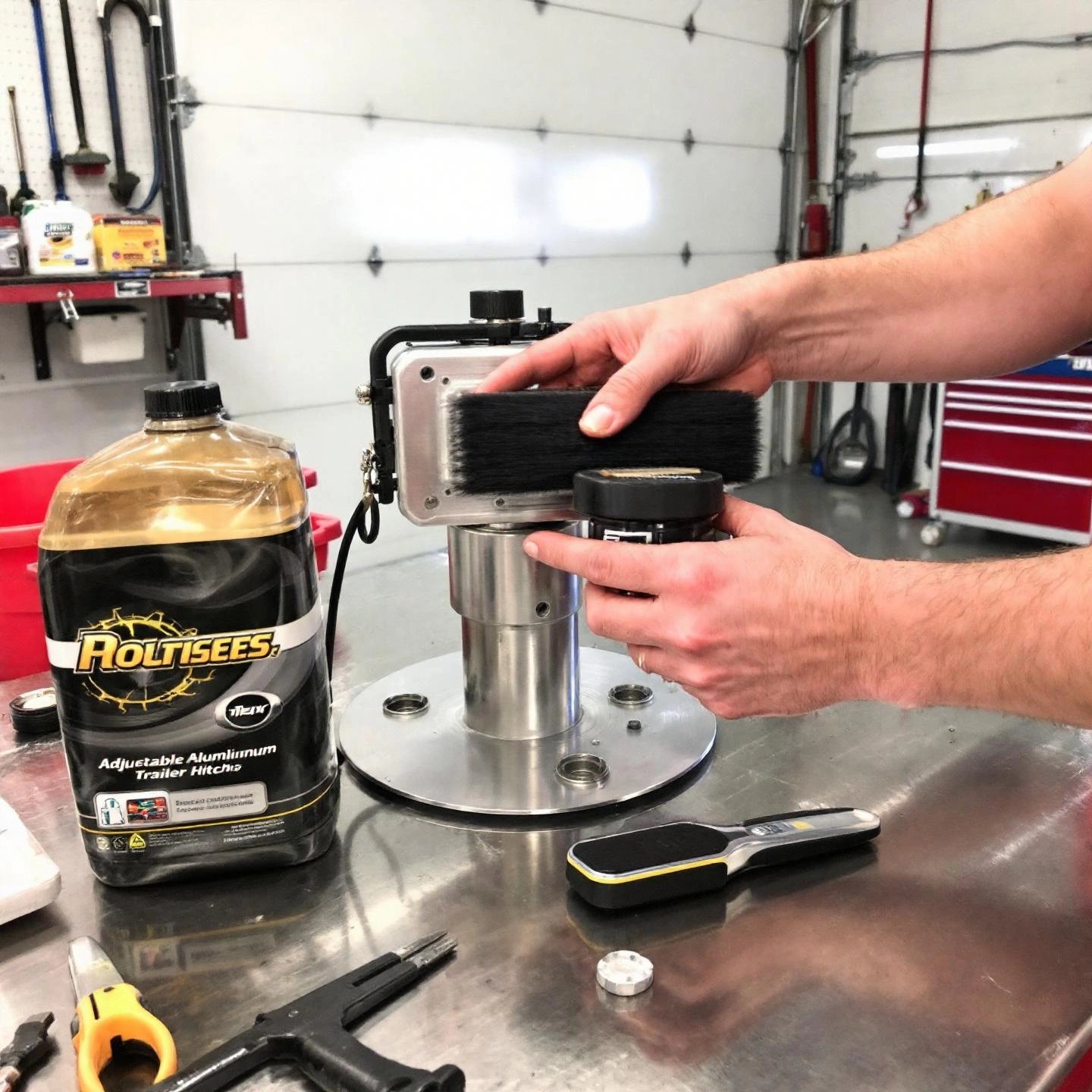
When was the last time you gave your trailer hitch a little TLC? Even though aluminum hitches are famously rust-proof, regular care is the secret to keeping your adjustable aluminum trailer hitch operating smoothly and lasting for years. If you want to avoid sticky parts, hidden damage, and frustrating roadside surprises, these practical trailer hitch care tips are your first line of defense.
It’s easy to think aluminum hitches are maintenance-free, but road grime, old grease, and debris can still gum up the works. Imagine preparing for a big trip, only to find your hitch ball stuck or the adjustable mechanism stiff. Sounds annoying, right? Simple upkeep not only prevents these headaches but also helps you spot minor issues before they become big problems (Millroad Trailers).
| Maintenance Task | Why It Matters |
|---|---|
| 1. Regular Cleaning | Dirt and grease trap moisture and mask wear. Wipe down your hitch after every few uses with a damp cloth, using mild soap for stubborn grime. Dry thoroughly to prevent residue build-up. |
| 2. Inspect for Wear or Damage | Check for cracks, bent pins, or any unusual stiffness in moving parts. Spotting these early means you can repair or replace components before a failure occurs. |
| 3. Lubricate Moving Parts | Apply fresh, water-resistant lithium grease to the ball, locking pins, and adjustable joints. This keeps everything moving freely and prevents metal-on-metal wear. Avoid using old, dirty grease as it can hide damage and accelerate wear. |
| 4. Protect from Corrosion | While aluminum resists rust, any attached steel parts (like pins or bolts) may not. Use a light oil or protective spray on these areas and consider a wax or clear coat for extra peace of mind. |
| 5. Check and Tighten Hardware | Vibration can loosen bolts and pins over time. Periodically check all fasteners for tightness, especially before long trips. |
| 6. Store Properly | If you remove your hitch between uses, store it in a dry, covered area. This keeps dust and moisture at bay, ensuring smooth operation next time you tow. |
Every hitch is a little different, so always follow the specific care instructions from your manufacturer. For example, Shengxin Aluminum provides detailed maintenance guidance with their adjustable aluminum trailer hitches, including recommendations for cleaning, lubrication, and regular inspection intervals. Adhering to these guidelines not only protects your investment but also ensures your hitch remains covered under warranty.
In summary, aluminum hitch maintenance is about more than just preventing rust—it’s about ensuring reliable, hassle-free towing every time you hit the road. With these simple steps, you’ll keep your hitch working like new and avoid the most common pitfalls. Next, we’ll dive into the most frequent towing mistakes and how to avoid them, so you can tow like a pro every time.
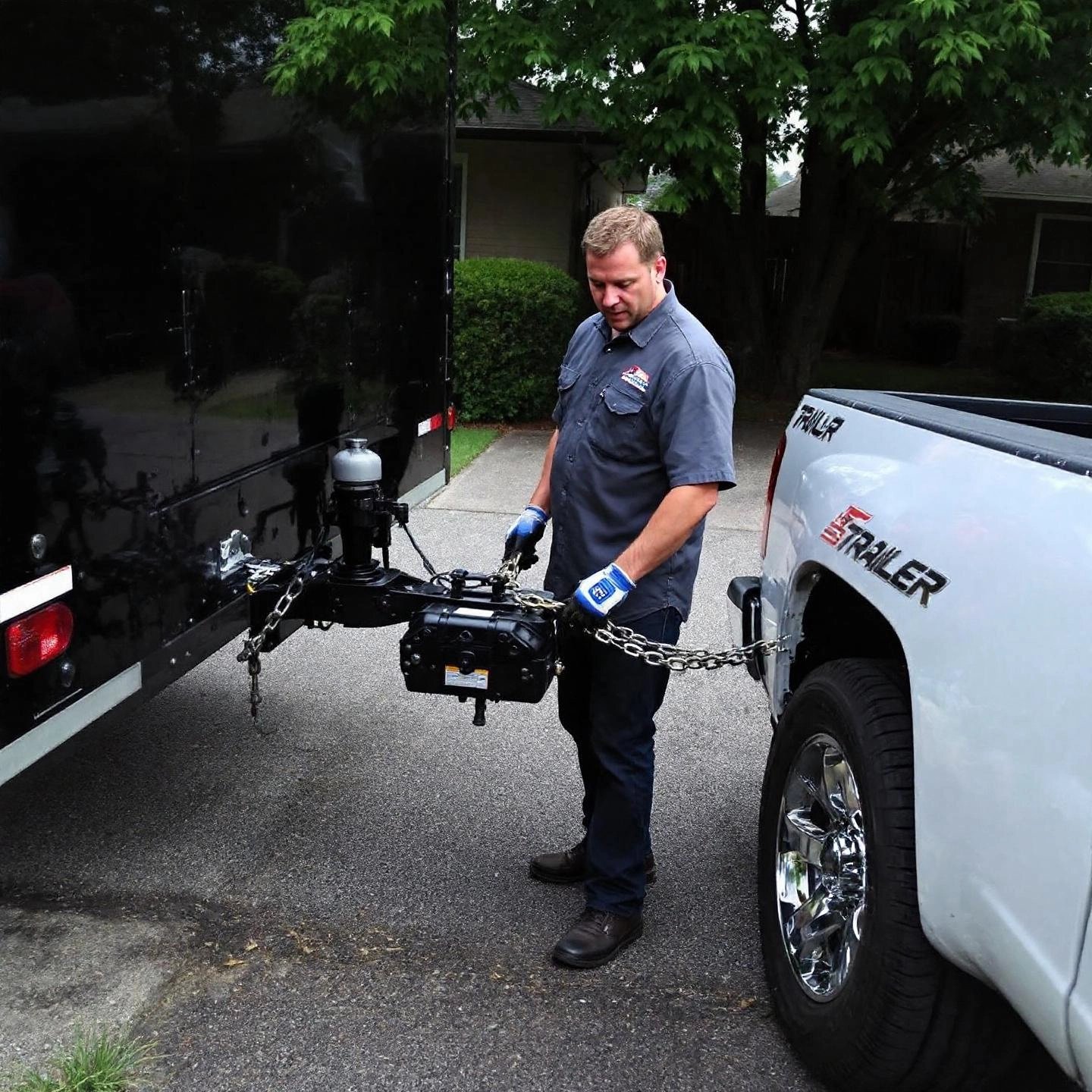
Ever wondered why some towing setups glide down the highway with ease, while others seem to struggle—or worse, end up in roadside trouble? Even with the best adjustable aluminum trailer hitch, safe towing comes down to knowing (and avoiding) the most common mistakes. Let’s break down the top errors that can put your safety and your equipment at risk—plus, simple habits that will keep every haul smooth and secure.
It’s easy to overlook a small detail when you’re eager to hit the road. But in towing, the little things matter most. Here’s a checklist of frequent missteps that can quickly escalate into serious problems:
Ready to tow like a pro? Along with avoiding the mistakes above, develop these habits every time you hitch up:
| Pro Habit | Why It Matters |
|---|---|
| Perform a full walk-around inspection before departure | Catches overlooked issues before they become hazards |
| Practice backing up and turning with your trailer | Improves confidence and reduces risk in tight spaces |
| Use towing mirrors for better visibility | Ensures you can see around large or wide trailers |
| Take wider turns and allow extra stopping distance | Accommodates the greater length and weight of your setup |
| Check your setup at every stop | Keeps your load secure and your hitch components tight |
By making these safe towing tips part of your routine, you’ll protect your investment, avoid the most common pitfalls, and enjoy the peace of mind that comes with true trailer hitch safety. Up next, we’ll recap the core benefits of choosing an adjustable aluminum trailer hitch—and help you decide if it’s the right fit for your towing needs.
Imagine pulling up to your next adventure—whether it’s a weekend camping trip, a boat launch, or a big move—knowing your hitch can handle it all. That’s the peace of mind a universal adjustable aluminum trailer hitch delivers. But what makes this tool so indispensable for modern towers?
If you’ve ever struggled with an unlevel trailer, swapped out multiple hitches for different jobs, or worried about rust and reliability, it’s time to consider an upgrade. A universal adjustable aluminum trailer hitch isn’t just a convenience—it’s a commitment to safer, more flexible, and more enjoyable towing.
For those who demand the best in reliability and innovation, Shengxin’s Aluminum Adjustable Trailer Hitch stands out as a top choice. Engineered from aircraft-grade aluminum, it offers a fully adjustable drop and rise system, integrated dual-ball mount, and a rust-proof finish designed for years of heavy-duty use. Whether you’re a professional hauler or a weekend adventurer, Shengxin’s hitch is built to adapt to your needs—no matter the season, trailer, or terrain.
Ultimately, investing in a high-quality adjustable hitch is about more than just convenience—it’s about responsibility. You’re protecting your vehicle, your cargo, and everyone sharing the road. So, before your next journey, ask yourself: Is your hitch up to the task? If versatility, durability, and safety are your priorities, the right adjustable aluminum trailer hitch will transform every towing experience for the better.
An adjustable aluminum trailer hitch offers exceptional versatility by fitting a variety of trailer heights and coupler sizes. Its lightweight, corrosion-resistant construction makes installation and handling easier, while the adjustable design ensures level towing for improved safety and reduced wear on your vehicle and trailer.
Aluminum hitches naturally resist corrosion, making them ideal for long-term use in harsh climates and wet environments. They are lighter than steel hitches, require less maintenance, and are easier to install or adjust. Steel hitches may offer slightly higher towing capacities for extreme loads, but require regular upkeep to prevent rust.
Adjustable hitches allow you to match the hitch height to different trailers, ensuring level towing. Level trailers distribute weight evenly, reduce sway, and minimize stress on both the towing vehicle and trailer, contributing to safer and smoother rides.
Key features include high-grade aluminum construction, a wide range of drop and rise adjustments, secure locking pins, clear weight ratings, and multiple ball sizes. A corrosion-resistant finish and dual-ball system add further convenience and reliability.
Regularly clean the hitch to remove dirt and debris, inspect for wear or damage, lubricate moving parts, and tighten all hardware. Even though aluminum resists rust, maintaining attached steel components and following manufacturer care instructions will ensure optimal performance and longevity.
 خدمة الإنترنت
خدمة الإنترنت 0086 136 3563 2360
0086 136 3563 2360 sales@sxalu.com
sales@sxalu.com +86 136 3563 2360
+86 136 3563 2360